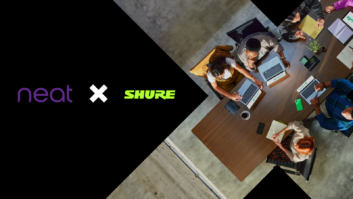
Management Perspectives: Link Management
Jan 1, 2009 12:00 PM,
By Don Kreski
How search engines rank your website is highly dependent on what other sites do.

You’ve optimized your new website. You’ve identified the keywords potential customers are likely to use in searching for someone like you. You have made sure your site supports them with meta tags, headlines, and body text emphasizing no more than two or three closely related key terms per page. The code is clean and straightforward, as is your navigation and text. You’ve been careful not to appear to spam the search engines with any tricks.
So far so good. “The other piece of the puzzle is to look at factors external to your site. The most important of these are the incoming links that point to your website,” says Tim Grant, owner and president of lunavista communications in Chicago.
EXTERNAL FACTORS
Today, all of the major search engines look at the number of links coming into your website, as well as at the ranking of the sites doing the linking. “The reasoning is that if a popular, credible site — especially one in a related field — references your site, then your site is more likely to be seen as credible and relevant,” Grant says. “The other thing you should understand is that search engines zip around the Web following links. If they find a lot of links to your website, they’re going to get inside your site more often, and you will be indexed more often. In the same way, if your site is an island without incoming links, it’s likely to be ignored.”
One problem is that the search engines only consider permanent links. If you buy a banner ad, it won’t count. “Another problem is that there’s a cost factor to it, and often a significant one,” Grant says. “Many of the sources of quality links recognize their value, and they will charge you.”
A third problem is that the search engines look for an increase of quality links over time. “It’s not a one-time buying spree. You need to have an ongoing link-building campaign,” Grant says.
Seth Dotterer is director of marketing for New York-based Conductor, a website marketing firm that targets large organizations. He says that most large companies have not only optimized their sites but have already secured a large number of incoming links. They come to him because these links often do not reflect their strategic priorities. “A larger retailer, for example, may have thousands of links coming into their home page, but almost nothing to the site’s house-and-garden section. If they decide that garden tools are strategically important, they may come to us to build rankings specifically for their garden-tool pages,” he says.
To accomplish that goal, Conductor will negotiate with websites specifically devoted to gardening to provide links to their clients’ gardening pages. These may be online versions of trade publications, portal sites, industry-specific directories, or other content providers. “We may find publishers who have broad and authoritative websites, or we may depend on blogs that are very specific to a subject,” Dotterer says. Most often, the publishers put a great deal of effort into establishing their readership and authority, so the links they offer have real value. These links most often take the form of additional resources on pages with closely related information, such as a “how to do it” story, technology news, product reviews, or an announcement of a show or event.
Management Perspectives: Link Management
Jan 1, 2009 12:00 PM,
By Don Kreski
How search engines rank your website is highly dependent on what other sites do.
SOURCES OF LINKS
An incoming-links program is something you can begin to develop on your own. “For starters, you can go after search directories, industry-specific directories, and geographically related sites,” Grant says. “We normally start with the Yahoo Search Directory — which, surprisingly enough, Google highly values.”
Ask for links from InfoComm, NSCA, and other trade groups, and one or more from each of your suppliers. The authorized dealer pages manufacturers offer are legitimate incoming links, as are membership directories or your Chamber of Commerce. “Exchanging links is fine, but Google values links that are not reciprocated more highly than those that are,” Grant says.
You can submit a video to YouTube, set up a profile on LinkedIn, or add comments to online forums if you include your URL in your signature. Links from social-bookmarking sites such as Delicious or StumbleUpon can be very valuable. “The search engines love these sites because they are showing what users want and like,” Grant says.
Grant will often send press releases through PRWeb and similar services. “You’d be surprised how many websites pick up your information and post it for their readers,” he says. There are thousands of blogs and news sites that are desperate for new content. They filter the feeds for releases related to their particular topic.
It’s important to pay attention to anchor text. “You are likely to improve rankings for a particular phrase if that phrase is the source of the link,” Grant says. That is to say, if you can obtain a link from the phrase “audiovisual contractor,” it will be more valuable in building your rankings for that term than one from your company’s name.
Grant says he also likes to take advantage of local search directories, Yellow Pages, and other regional web services. “Local search — as offered by Google, Yahoo, and MSN — typically accounts for 33 percent or 34 percent of all searches,” he says. Searchers may not even realize they are tapping these directories; the search engines will try to read their geographic locations and weight results to local firms.
AN ONGOING INVESTMENT
The fact that directories and other sites often charge for links raises the question of spamming the search engines. “Google has, in fact, stated that they don’t like the idea of purchased links,” Grant says.
“The reality is that in offering a natural search service of high value to buyers, Google has created an optimization industry, and they understand that,” Dotterer says. “It’s obvious that companies are going to compete for their rankings, and they’re going to spend money in the process. Our thinking is that whatever marketing method you use, consider the end users first. If it tends to harm or deceive the end user, the search engines should and will find ways to stop it. If it is relevant and adds value for the end user, it will improve the searcher’s experience and be a win for the searcher, search engine, and you.”
Another question for any site owner is the cost of these links and their return on investment for hiring a firm such as lunavista or Conductor to secure them.
If you see your website only as an online brochure built to show to people already interested in your services, this type of program may not be worth the cost. If your site is very small, doesn’t describe your company adequately, badly needs updating, or has never been optimized, you might want to invest in those things first.
But if you expect your site to provide sales or sales leads, a link program is certainly worth considering. “It’s a lot like creating a brochure. If you spend thousands of dollars on printing, it’s silly not to spend a little more on stamps so you can put it in the mail,” Grant says.
In our next column, we’ll look at pay-per-click advertising, which can be a supplement for or an alternative to web optimization and links programs.
Don Kreski is a marketing consultant who works exclusively in the AV industry. You can reach him at www.kreski.com/contact.










